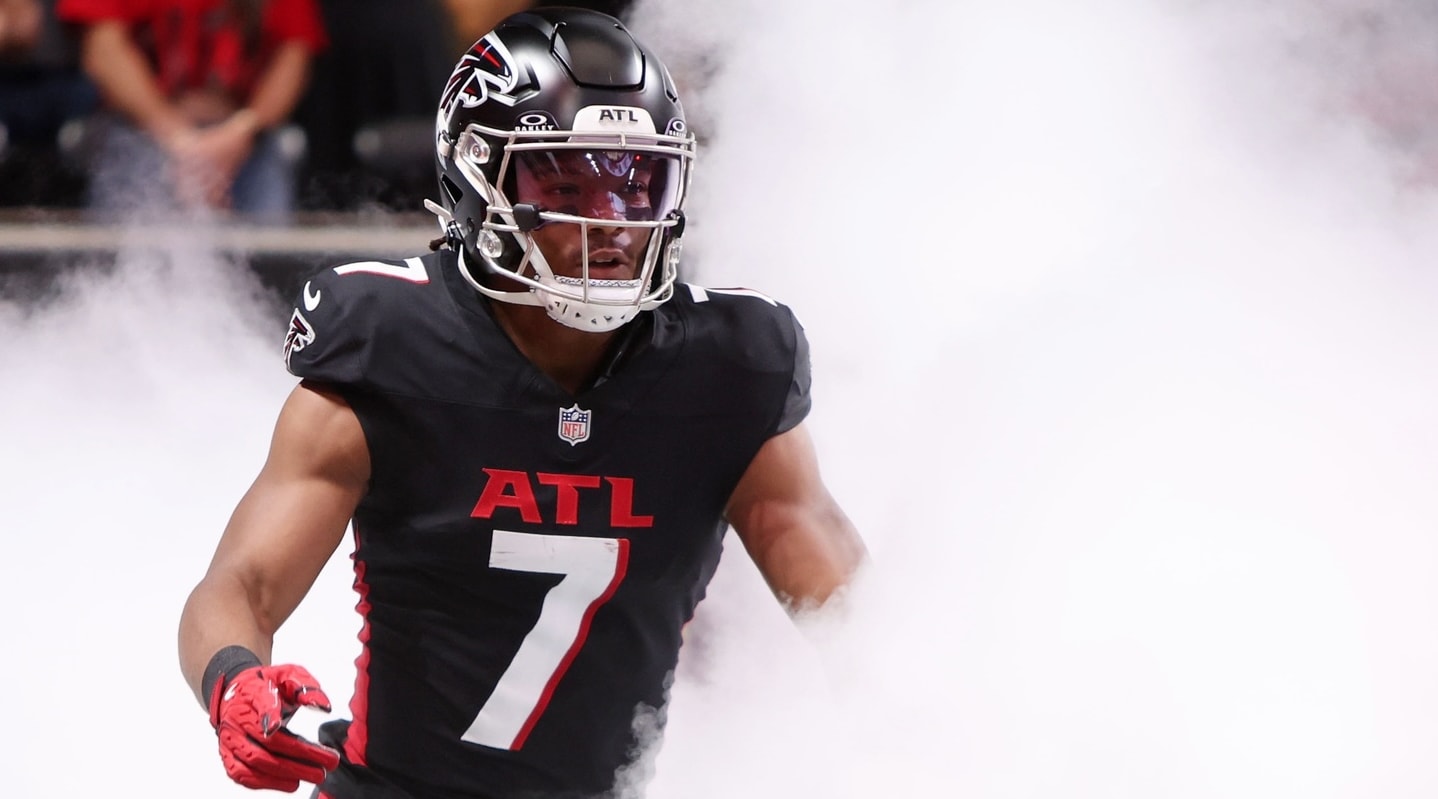Building the Perfect Fantasy Football League
I participate in too many fantasy leagues to mention without being horribly embarrassed, one of which is a league with some people work within the Dallas Cowboys organization (some writers, a Cowboys cheerleader, and a fan).
Now I'm not going to completely speculate on the quality of the owners in the league because some might be decent for all I know, but let me just say Tom Brady was drafted in the first round. So there's that.
You'd think I could just run over a league like that. But after missing the playoffs last year, I'm currently 2-5 and in second-to-last place. I've scored almost 50 points less than the cheerleader. I'm winning or in the top quarter of multiple high-stakes leagues, yet I can't crack the top half of a league in which Brady was a first-rounder and Jamaal Charles nearly slipped into the third.
You might argue I'm writing this because I'm bitter, and you'd be exactly right. It's pretty annoying to make what you consider to be optimal decisions and then just get killed by a game filled with so much inherent variance.
So that's why I was glad to see Chris Liss's recent article on the increasing difficulty to win fantasy football. Here's the paragraph that struck me:
There will always be luck in all fantasy sports, and more of it in football than anywhere else given the head-to-head set-up, the small sample and the way scoring depends so heavily
Building the Perfect Fantasy Football League
I participate in too many fantasy leagues to mention without being horribly embarrassed, one of which is a league with some people work within the Dallas Cowboys organization (some writers, a Cowboys cheerleader, and a fan).
Now I'm not going to completely speculate on the quality of the owners in the league because some might be decent for all I know, but let me just say Tom Brady was drafted in the first round. So there's that.
You'd think I could just run over a league like that. But after missing the playoffs last year, I'm currently 2-5 and in second-to-last place. I've scored almost 50 points less than the cheerleader. I'm winning or in the top quarter of multiple high-stakes leagues, yet I can't crack the top half of a league in which Brady was a first-rounder and Jamaal Charles nearly slipped into the third.
You might argue I'm writing this because I'm bitter, and you'd be exactly right. It's pretty annoying to make what you consider to be optimal decisions and then just get killed by a game filled with so much inherent variance.
So that's why I was glad to see Chris Liss's recent article on the increasing difficulty to win fantasy football. Here's the paragraph that struck me:
There will always be luck in all fantasy sports, and more of it in football than anywhere else given the head-to-head set-up, the small sample and the way scoring depends so heavily on touchdowns. But the extent to which luck governs an activity should be inversely proportional to the amount of work it requires. I think recent developments are adding much more work and only slightly more skill, and to the extent that there is more skill it's less about predicting true breakouts or handicapping team strength than digging into irrelevant minutiae like whether a slot receiver will catch six passes on a given day.
I couldn't agree more with that assessment. There's so much work that needs to be done to hold a competitive advantage over opponents, yet in most cases, that advantage won't even propel you to victory. In a 10-team league, I might own a 20 percent chance to win the championship. That's double the average owner, but I'd still need to participate in dozens of leagues to know for sure if my successes (or failures) are due to luck or skill. It's too much work for the miniscule potential returns.
That's one reason I'm moving more and more of my action to daily fantasy sports. Although there's obviously plenty of randomness involved there, too, I can at least participate in a large enough sample of leagues to see a return on my investment (of both money and time).
But I'll always participate in season-long leagues because, well, there's nothing quite like a preseason draft. The key is to figure out how we can minimize the randomness.
Deep Rosters/Starting Requirements
I was in a league last year that started 1 QB, 1 RB, 1 WR, 1 RB/WR, 1 TE, 1 K, and 1 D. That's the sort of league in which Demaryius Thomas is a flex play.
The smaller the rosters, the more inherent randomness. By expanding both rosters and starting lineup requirements, it will increase the amount of skill and knowledge needed to prosper. The Demaryius Thomas vs. Julio Jones decision is dictated more by luck than, say, Stephen Hill vs. Bryce Brown.
In my view, a deep league format like 1 QB, 3 RB, 5 WR, 2 TE, 1 QB/TE is suitable. That might seem freaking outrageous, and it would certainly extend draft times, but it would also decrease the ability for crappy owners to win the championship.
Best-Ball Format
Chris mentioned that deep lineups can lead to difficult week-to-week matchup decisions that are governed primarily by luck, but that would disappear in a best-ball format. That means you don't choose starters each week; your top-scoring players are just automatically inserted into your lineup. If the goal is to increase the importance of the draft - the culmination of countless hours of research - over in-season moves, a best-ball format is the way to go.
All-Play + H2H
In Week 1, I scored 180-something points in a relatively thin league, and I lost to the top scorer. I got a loss just the same as if I scored 50 points. That's not right.
My personal preference is to crown the total-points winner the champion at season's end, but many people enjoy the head-to-head nature of fantasy football when playing with friends and coworkers.
If you want to keep head-to-head matchups, at least add in an "all-play" element to that structure. In that format, you get a win or loss for your heads-up matchup and another win or loss for finishing in the top half or bottom half for the week. In an all-play league structure, I would have finished 1-1 in Week 1 instead of 0-1, getting rewarded for scoring a bunch of points.
No Kickers, Defenses, or Bonuses
All of them are too volatile. There's zero year-to-year correlation for kicker points, meaning they're just totally unpredictable. You could make an argument for team defenses deserving a spot, but not bonuses. Even though certain players are more likely than others to reach 100-yard and 300-yard milestones, deciding which of those elite options - players everyone owns - is a crapshoot.
Keeper vs. Dynasty
I'm a little bit torn on whether or not a keeper league or a true dynasty (retaining all players) is best. The reason is that, even though dynasty leagues require a deeper commitment and more research, they can unnecessarily punish you for one poor draft.
That's why (I think) I prefer a deep keeper league. In a league in which you can keep, say, seven players, you're strongly rewarded for quality drafting and forward-thinking, but not to such an extent that a great owner with a poor initial draft can't rebound.
I also prefer keeper leagues in which you lose a pick in the round in which your keepers were drafted. That basically gives each player a "contract," making keeper decisions more difficult and potentially opening up the pool of available players each year.
Auction Format
The biggest problem with fantasy football as it stands right now, in my opinion, is the unfairness of a traditional snake draft. There's just too much value at the top of the draft to make it fair. Even third-round reversal drafts, while superior to traditional 1-12, 12-1, 1-12 formats, create issues.
Auction drafts are naturally fairer than snake drafts. There are no draft slots to inhibit your ability to acquire players; if you want a guy, you can get him.
There's also way, way more strategy involved with auctions. You need to allocate cap space to each position, understanding market value and how the decisions of others affect your own. That's true (in a way) in traditional drafts, but not to the same degree.
And in keeper auction leagues, a player's "contract" is an actual dollar value. If you want to retain a player, you just give up the price at which you bought him (or the price plus X dollars) in the previous year.
And with that, I think I just fixed fantasy football.
Jonathan Bales is the author of the Fantasy Football for Smart People book series. He also runs the "Running the Numbers" blog at DallasCowboys.com and writes for the New York Times.



























